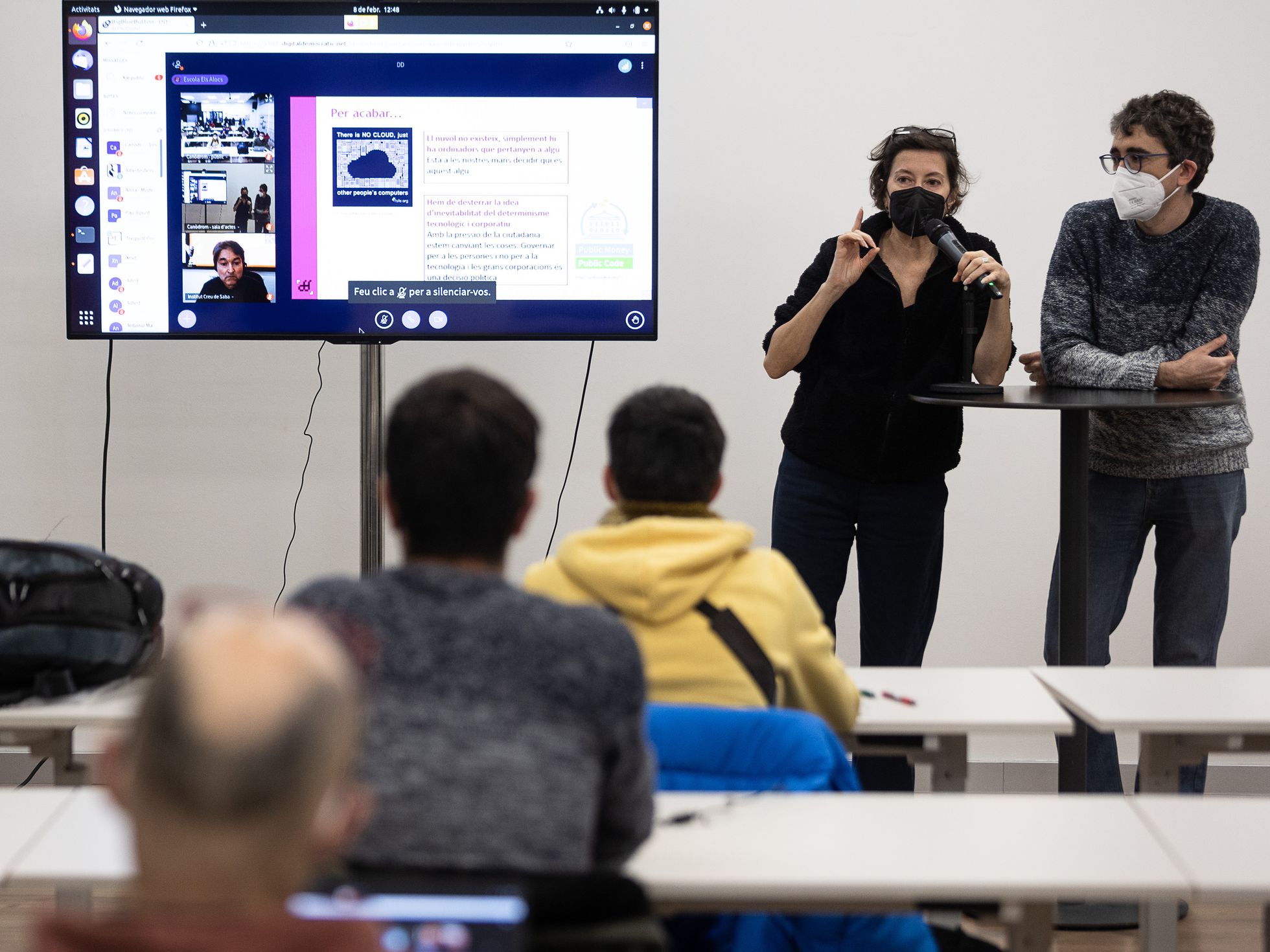
Working with the families, the City Council, and the Barcelona Education Consortium to find a solution, Xnet curated the ‘Democratic Digitisation’ suite, which is based on open-source software including Nextcloud, Open Office and BigBlueButton. Although they mirror the functionality of their commercial counterparts, these open-source tools are auditable and open so that, according to Simona Levi, the founder of Xnet, there is “direct user control over the content and stored data.”
“We aggregated these tools because we believe in their longevity and future stability. They provide similar feature sets, but with all the added benefits that come with using publicly accessible software, including clearer transparency into data collection and its management.”
said Levi

This customizability is one of the key advantages of the new suite according to the schools. As Levi notes, “it is designed to adapt to the needs of each school and become as complex as the center requires.” This speeds up the transitioning process, because it allows educators to adapt the tool to the way they want to teach, which means more time teaching and delivering effective online classes.

“We’re proud to have BigBlueButton included in the Democratic Digitisation suite, and we support the movement to provide access to a high-quality online education in a way that protects student’s privacy.”
says Fred Dixon, Product Manager for BigBlueButton.
To learn more about the Xnet Project and their fight for digital transparency, visit: https://xnet-x.net/en/
BigBlueButton is the world’s only open source virtual classroom. Originally created in a Canadian university, it has been designed into Moodle Cloud, Canvas, Sakai, D2L, Jenzabar, and Schoology and is available in 55 languages, making it the preferred virtual classroom application in over 75% of global LMS platforms.